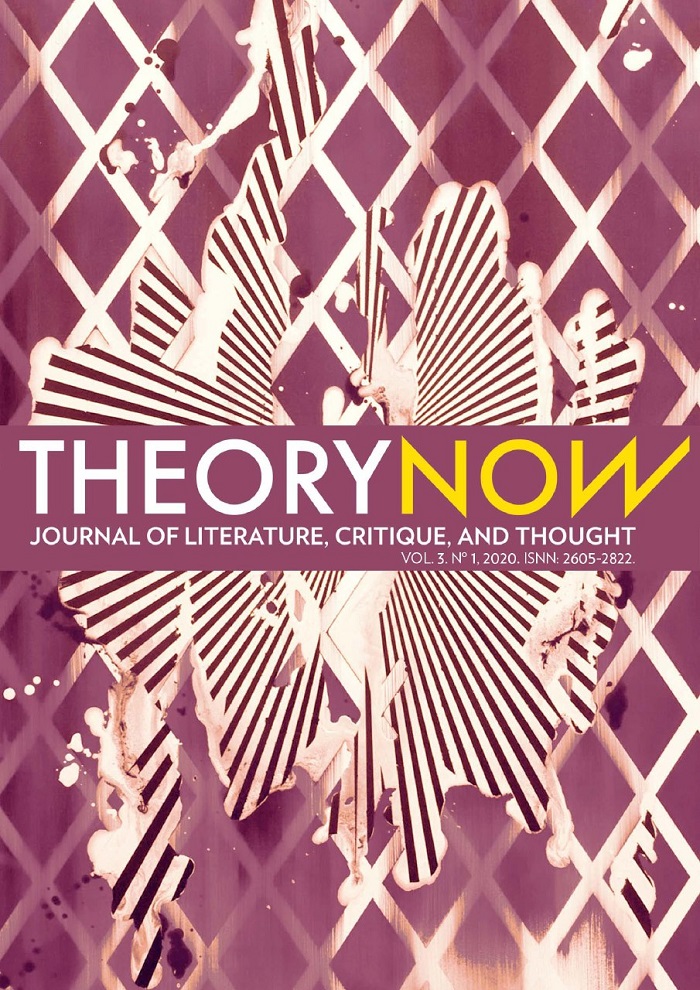The desire for Neutral and the Singular. Notes on the aporias of an ethical curiosity in Barthes’ works.
DOI:
https://doi.org/10.30827/tnj.v3i1.11291Keywords:
Neutral, Barthes, Ethics, Singular, Aporia, BlissAbstract
Through the desire for Neutral, discussed in his course at the Collège de France on the Neutral (1977-1978), Barthes positions himself as fervently “disinterested” in institutional knowledge. In particular, the intellectual journey of Barthes, from the politically engaged author of the reviews of the 1950s to the amateur, searching for a hermeneutics of the self, culminates in his course at the Collège de France: the passage from literary critic to praeceptor amoris is revealed by the ethical desire for the Singular. In Barthes’ “concern for the self”, in which emancipation of the individual would precede that of the collective, the conception of an ethics is recognizable, without being placed in an immediately political doctrine. In this way, practice of the self coincides with a type of writing, in which literature is valued for its effect, its use, than for its sense. The appreciation of a text as a propaedeutic to the self would constitute in fact a political usage of literature: a search for sense of self would not be purely individual and consolatory, but rather incite an active practice of bliss. This article discusses primarily the relationship between Barthien desire for idiosyncrasy and the ethics of the Singular.Downloads
References
Barthes, Roland. Le Degré zéro de l’écriture suivi de Nouveaux essais critiques. Paris, Seuil, 1972 [1953].
_____. L’Empire des signes. Genève, Éditions d’Art Albert Skira S.A., 1970.
_____. Roland Barthes par Roland Barthes. Paris, Seuil, Œuvres complètes V, 2002 [1975].
_____. Leçon. Paris, Seuil, 2002 [1978].
_____. La Chambre claire : note sur la photographie. Paris, Gallimard, Seuil, 1980.
_____. Le Bruissement de la langue : Essais critiques IV. Paris, Seuil, 1984.
_____. Le Neutre. Notes de cours au Collège de France 1977-1978. Texte établi, annoté et présenté par Thomas Clerc. Paris, Seuil, 2002.
Benvenuto, Sergio. "Il significante – tra Saussure e Lacan". Phycomedia [en ligne] : http://www.psychomedia.it/pm/indther/lacan/benvenuto2.htm.
Bourdieu, Pierre. Esquisse d’une théorie de la pratique, précédé de Trois études d’ethnologie kabyle. Paris, Seuil, 2000 [1972].
_____. Homo academicus. Paris, Minuit, 1984.
Bratfisch, Juliana. « “L’envie de l’intermezzo” : une métaphore pour l’écriture barthésienne ». Revue Roland Barthes, nº 1, juin 2014 [en ligne] http://www.roland-barthes.org/article_bratfisch.html.
Cassegrain, Guillaume. Roland Barthes ou l’image advenue. Paris, Editions Hazan, 2015.
Castoriadis, Cornelius. La Montée de l’insignifiance. Paris, Éditions du Seuil, 1996.
Chassain, Adrien. « Roland Barthes : “Les pratiques et les valeurs de l’amateur” », Fabula-LhT, « “Vertus passives” : une anthropologie à contretemps », n° 15, octobre 2015, [en ligne] http://www.fabula.org/lht/15/chassain.html.
Clair, André. Kierkegaard, Penser le singulier. Paris, Les Éditions du Cerf, 1993.
Comment, Bernard. Roland Barthes vers le neutre. Paris, Christian Bourgois, 1991.
Forest, Philippe. « La science impossible de l’être unique. Notes sur Roland Barthes », Studi Francesi, 165 (LV | III), 2011, pp. 596-603.
Foucault, Michel. Histoire de la sexualité. L’Usage des plaisirs. Paris, Gallimard, 1984.
Fukuda, Daisuke. « L'enfant qui jouait le jeu de la Mère. Le cas de Roland Barthes ». Savoirs et clinique, vol. 2, n° 11, 2009, pp. 44-51.
Kierkegaard, Søren. Point de vue explicatif de mon œuvre. trad. Tisseau, Bazoges en Pared, 1940.
Lacan, Jacques. « Le séminaire sur la lettre volée », La Psychanalyse, n°2. Paris, PUF, 1956.
Meizoz, Jérôme. Postures littéraires. Mises en scène modernes de l’auteur. Genève, Slatkine Érudition, 2007.
_____. « Posture d’auteur ». Fabula, 2017, [en ligne] https://www.fabula.org/atelier.php?La_posture_d%27auteur#_ftnref1.
O'Meara, Lucy. « Barthes : hérétique consacré ? ». Claude Coste & Mathieu Messager, Revue Roland Barthes, « Barthes à l'étranger », nº 2, octobre 2015, [en ligne] http://www.roland-barthes.org/article_omeara.html.
Rivenc, François. Sémantique et vérité : De Tarski à Davidson. Paris, Presses universitaires de France, 1998.
Schillinger-Kind, Asa A. Enten-Eller [Aut-Aut] di Søren Kierkegaard, guida e commento. Milano: Garzanti, 1999.
Timmermans, Benoît (coordination scientifique). Perspective Leibniz, Whitehead, Deleuze. Paris, VRIN, 2006.
Yousfi, Louisa. « Kierkegaard : de l'angoisse d'exister », Sciences Humaines, vol. 256, no. 2, 2014, pp. 33-33.
Downloads
Published
How to Cite
Issue
Section
License
Theory Now. Journal of Literature, Critique, and Thought is an immediate open-access publication which is available at no cost for readers and authors alike. Authors are not charged any kind of fee for the editorial processing of their articles. Reading, downloading, copying, distributing, printing, searching, linking or reusing all published articles for non-commercial uses is allowed on the condition of citing the author, the journal and the editing body. All intellectual material published in this journal is protected under a Creative Commons Attribution-NonCommercial 3.0 Spain license.
Dissemination of the articles in social (Facebook, Twitter, Linkedin, etc.) and scientific networks (ResearchGate, Academia.edu, etc.), public repositories at universities and other institutions, blogs, personal or institutional websites, Google Scholar, ORCID, ResearchID, ScopusID, etc. is strongly encouraged. In all cases, the intellectual property of the articles and any possible monetary profits derived from them belong exclusively to the authors.













